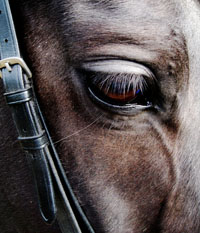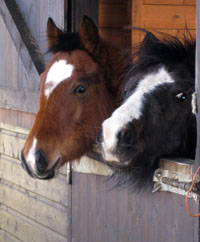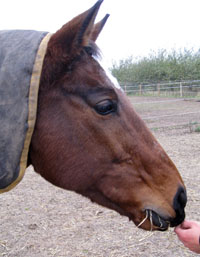What are enteroliths?
Enteroliths are intestinal stones composed of magnesium ammonium phosphate salts, sometimes they form around a small foreign object eg. a pebble, or even a piece of baling twine in a similar manner to pearl in an oyster. Large enterolith stones in a horse's colon can cause an obstruction and result in colic.
What causes enteroliths?
Possible causes include:
Excessive minerals in the diet eg. magnesium, phosphate, or calcium.
Ingestion of foreign objects.
Lack of turnout
A diet of 50% + of Alfalfa hay
What are the symptoms of an enterolith?
Symptoms of an enterolith are similar to those of colic:
Depression
General discomfort
Restlessness
Lying down at unusual times
Pawing
Kicking or biting at the belly
Sweating
Increased pulse and respiration
Disinterest in eating
Yawning and teeth grinding
Flehmen
Mucous covered faeces
Lack of droppings
Distended flanks
How are enteroliths diagnosed?
Enteroliths are usually diagnosed surgically during an impaction colic operation.
How are enteroliths treated?
Enteroliths are treated by surgical removal, there is a good prognosis for survival with a 95% survival rate.
Will enteroliths recur?
If dietary / turnout changes are not made there is a strong chance that further enteroliths will develop.
What type of horses are prone to enteroliths?
Enteroliths are more likely to develop in mares, they are more common in Arabs than other breeds and most commonly occur between the ages of 5 -10 years.
How to avoid your horse developing enteroliths?
If feeding alfalfa hay it should provide less than 50% of the horse's daily forage ration.
Reduce / eliminate the feeding of bran due to high levels of phosphorus
Avoid prolonged periods of confinement
Provide daily turnout
Split hard feeds into 3 / 4 meals a day
Prevent access to foriegn bodies
Adding vinegar to feed will reduce the PH in the intestine, high PH cancause minerals to attach to foreign bodies in the colon which may result in the formation of an enterolith.




